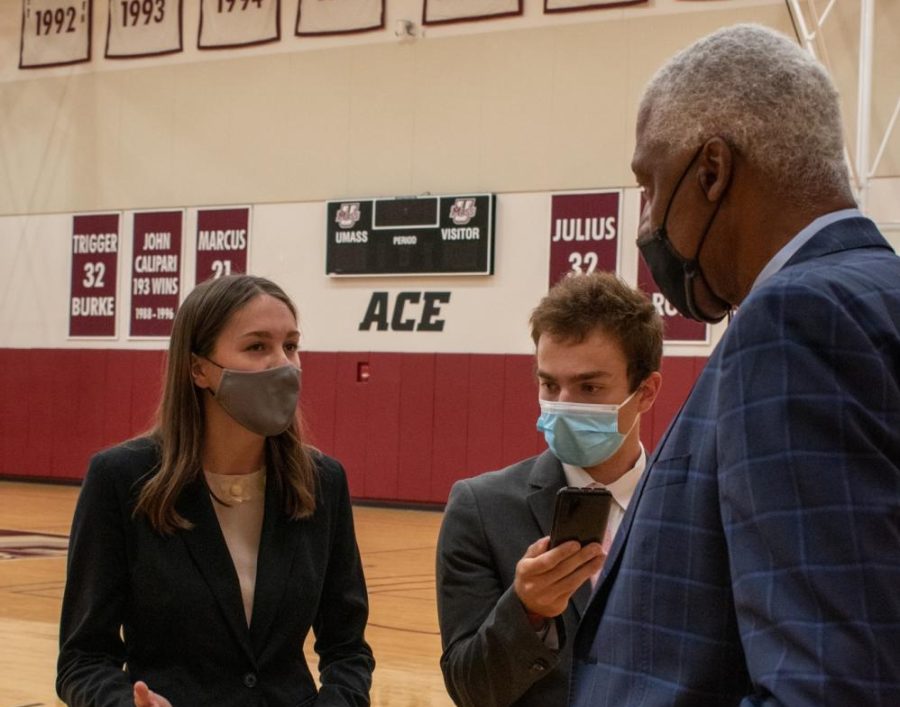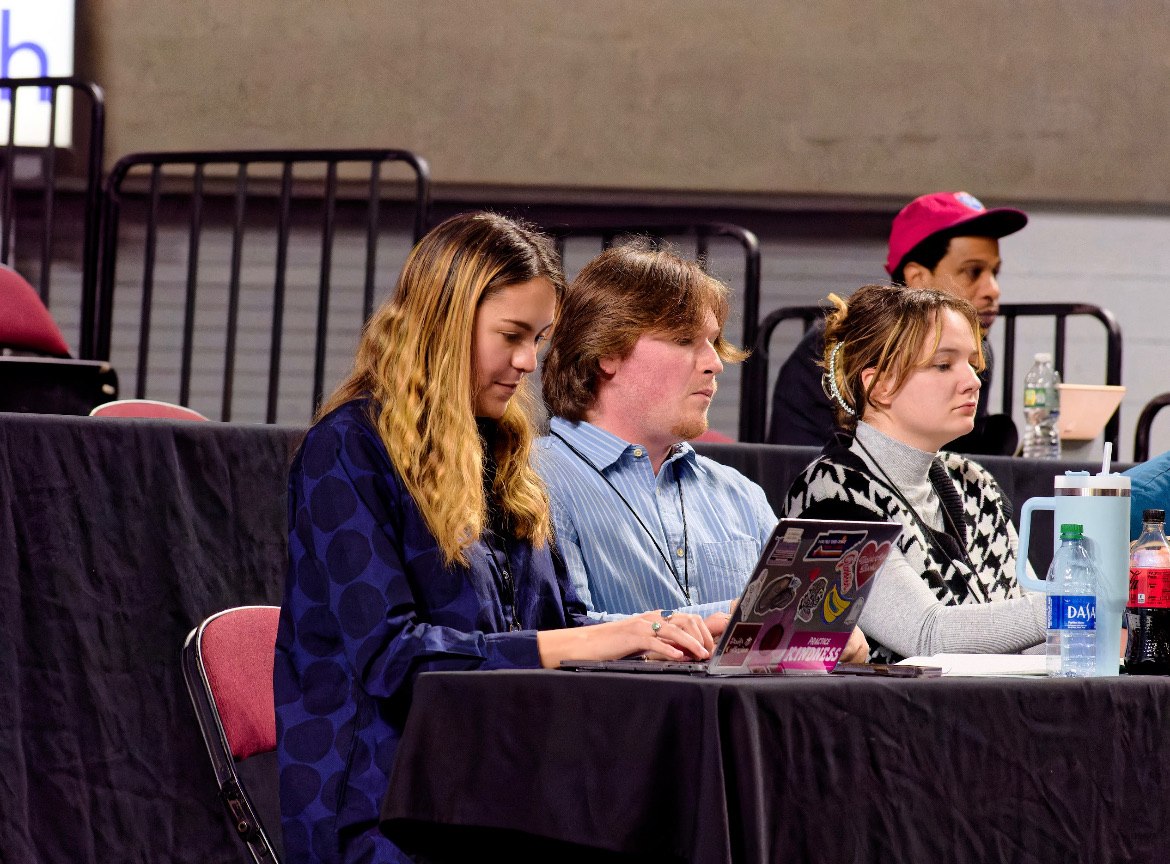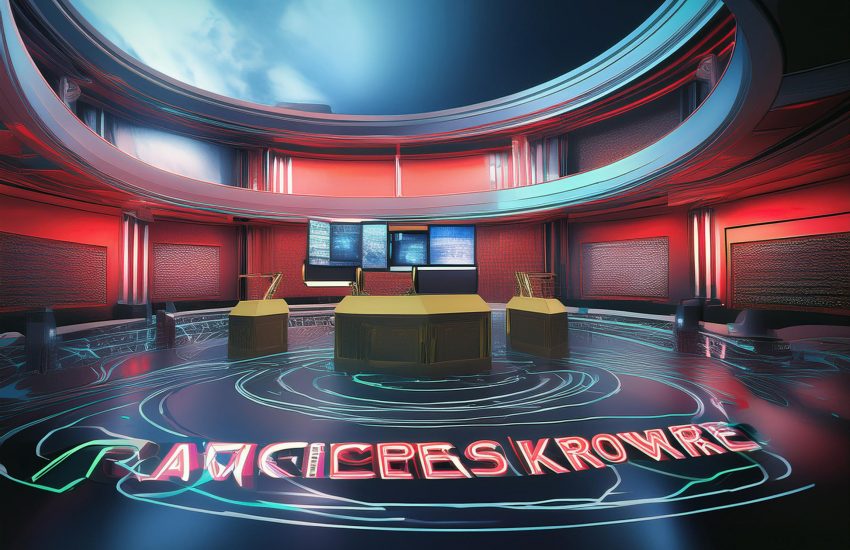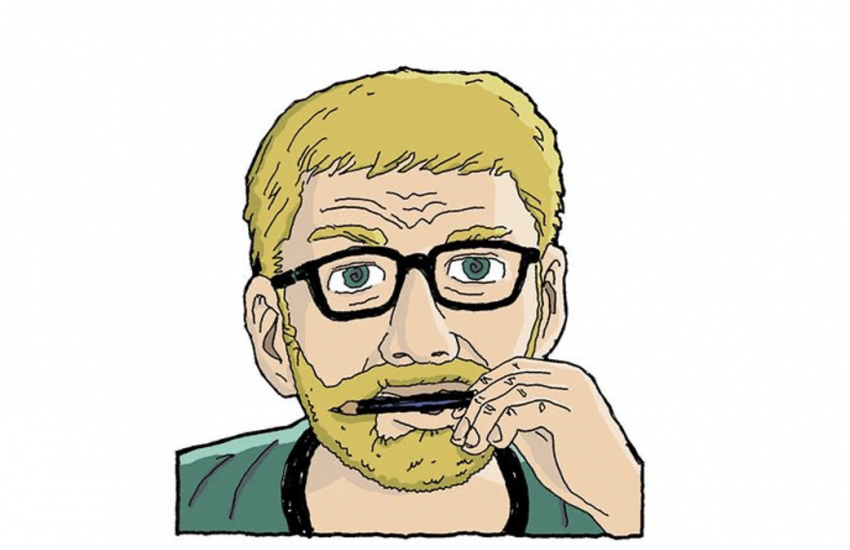Unlocking heartfelt narratives: The power of vulnerability
Journalists and writers differ. The world of journalism doesn’t always depend on emotional depth and creativity like traditional storytelling does. Journalistic writing is rooted in truth and clarity — that combination can lead to one-dimensional writing lacking deep themes to analyze or hidden gems to unlock.
However, journalism doesn’t always have to be that way. While some journalists may love the straightforward aspect of the field, journalists like Lulu Kesin do not.
Kesin, who will be graduating from UMass Amherst this may, has spent the last four years of college storytelling. As Head Sports Editor of the Massachusetts Daily Collegian, Kesin wrote many classic, news-like game recaps, exploring the typical boundaries of reporting. However, her passions have always lied in discovering deep, authentic, emotion-driven stories. Kesin, a 21-year-old writer, epitomizes the crossover between writers and journalists — Storybench sat down with her to discuss the power of emotional writing.
Who taught you how to tell stories?
Lulu Kesin: There was never a formal introduction to journalism, but when you’re writing or when you’re being a journalist, you’re necessarily telling a story. I started taking broadcast journalism seriously in high school, and that was only really because when you’re writing for broadcast, it’s a script, and a lot of the time, in order to tell a story, you need a script. I began to think of myself as a storyteller because I was constantly writing out what I wanted to say on camera.
In high school, a woman named Elena Frogameni, who was only a couple of months older than me at this point, got me into journalism. She explained what journalism is through our school’s weekly news broadcast, ‘The Transcript’. So I would say if I had to pinpoint when I first thought of myself as a storyteller, it would be in that era.

How do you get people to tell their stories from the heart? What do you look for?
LK: I’m a kind person, but I don’t ever go into situations with the intention of getting information from someone. It’s sort of just about being myself. I would be naive if I sat here and said “oh people just naturally spill their heart out to me. I really try to, I think, make my subject understand that it’s just two people having a conversation. And while authentic conversation may sometimes still be hard for people, I’m only here with the good intentions of learning more. But I can’t learn more if people don’t tell me the truth.
Having open and honest conversations are the foundations of our being, and it’s the foundation of every great dialogue — openness and honesty. In every interview, my intentions are at the forefront.
When I’m interviewing someone, I’m not putting up a different voice or putting up a different set of ears. Because I am being clear with my intentions, I’ve been lucky that by leading with kindness and honesty about what I’m doing, people will likely meet me the same way.
Why do you believe being vulnerable creates the best stories? How do you create a space for strangers to be vulnerable with you?
LK: I think vulnerability is at the heart of our beings. We don’t ever feel no emotion, and vulnerability is one of the most beautiful states a human can be in and exist in. Vulnerability fuels success and growth. I don’t think you can find success in life without being vulnerable.
I recognize that when people want to talk about their success, it often comes from a vulnerable place to understand how you are the way you are, where you got to where you are. I think also vulnerability is the fuel to life’s greatest complexities and mysteries. As a storyteller, I keep in mind that the greatest versions of ourselves are seen through a vulnerable lens.
“When I’m storytelling, I want to ensure that there is a level of honesty but a level of willingness to be vulnerable, not just honest, because I see a difference in the two.”
When I’m storytelling, I want to ensure that there is a level of honesty but a level of willingness to be vulnerable, not just honest, because I see a difference in the two. I’ve always kind of viewed honesty as sort of like ‘the but.’ I think people can be honest and acknowledge something about themselves, but they’ll often stop there.
If I am talking with someone, I don’t help them connect the dots of their story, because that’s normally when people put up a front. It’s an ongoing process of taking what people are saying and continuously looking for that next step, continuously asking if they bring up a moment in life, it’s a quick “why do you think that happened?
I’m always asking why or recognizing that there are always layers to moments in life, so naturally, I look for those layers with questions. I am always trying to find a situation that digs just a little bit deeper by nature of just being more curious about what they’re already willing to say. Because journalists are meant to relate the common word to the common person.
How do you differentiate yourself from other writers? How do you want to be differentiated?
LK: I just want people to recognize that I care and that I’ll go the extra mile for things.
I genuinely care about the subjects and the topics I write about beyond just the byline. I want to continue to make it clear that I care about the work I’m doing for the betterment of everybody, not just myself. I’m not doing this for my own clout or to make myself feel good when someone says they liked my work. I’m doing this to get people’s voices heard and thoughts shared.
I care about the weird unique parts of peoples stories and I’m able to remember random fact and really specific things about people. Half the time the story angles I think of are things everyone else heard about someone but forgot. I always listen closely because I know that great story can sometimes come from the smallest detail. This is what differentiates me as a sports writer. I have a different eye for when I’m watching a game because I seek beyond just the sport itself.
“I have a different eye for when I’m watching a game because I seek beyond just the sport itself.”
What has been the biggest turning point in your journalism career so far?
LK: Lulu explained there are a few easy answers to this question. To those around her it might be when she became a sports editor or maybe when she got her internship at Sports Illustrated, but what sticks out more to her is different than the usual happy story.
I was very much struggling with depression this fall to a degree that I hadn’t really experienced before. Writing has always been an outlet and something that I love doing. But at this time, I had put off writing a story because I couldn’t get myself to mentally write it.
People would argue that’s one of my best stories, there are lines and tidbits and moments in that story that I will forever be proud of and unapologetically be proud of that story.
And to think I did that in such a dark time doesn’t necessarily encourage me to work through the hardships and the stress but it’s a turning point in recognizing this is really what I’m meant to do. If I’m able to produce a story like that, if I’m able to write even when it feels like the entire world is falling around me, then I think there’s no denying that I have pure natural talent and love for writing. The positive writing environment disappeared. I wasn’t surrounded by good energy when writing that piece. I asked myself, ‘is this still really your thing when all else fails’ and I learned it was.
In a male-dominated sports world, naturally, luck is the state of mind Lulu typically thinks she exists in. This idea that everything good she’s done is some form of fate or that she has some other reason that doesn’t have to do with herself, to thank. That story proved otherwise.
When I’m fully immersed in a long-form story and calling people, quoting people, and writing things down, I feel most like myself. I’m soaking up information that all comes back to a central theme. When I’m asking questions to coaches right after games because that’s me doing the thing. I’m watching something, learning from it, and asking questions; that’s the process in a nutshell. When I am able to dive in on a long-form piece or when I am able to be in a press conference, that’s probably when I feel most happy career-wise.
What are your thoughts about yourself as a role model?
LK: I want to be a role model. I’m always careful answering this because a lot of the topics that I like to write about I will never be fully able to experience what it is like to be in those spaces as a person of color. I can write and advocate for equality on the basis of race. Still, I will never know what it’s like to be a Black athlete, a Black writer, or a Black female in America, so to be a role model is to do what I can without serving and taking up space that is not meant for me.
I want to be a role model in the sense that I want to inspire other people to be kind and to be vulnerable, and honest, to write about things that matter that go beyond the lines we typically hear about.
I want to be a role model that learns and grows and is just as much educated by others as I attempt to educate people that I work with and surround myself with.
Where do you see yourself in 50 years?
LK: I’d be lying if I didn’t say that a part of me goes to sleep wishing that in 50 years I will live this long luxurious life of a writer that people care about. I’ll never be Joan Didion, but if I could be a tenth of what she was, then I think I have made it somehow, and I’ll be happy.
I want to be remembered as an icon that pushed for positive change and made a difference and who was a trailblazer in some way. There’s the quote that ‘no one will forget Jo March’ [in Little Women] and I want to be the type of writer that reaches as many people as I can. Where my name can be somewhat unforgettable to a group of people, if not as many people as it can.
My younger self would be shocked to find out that I’m a writer. I grew up dyslexic, I could barely read, I could barely write, I hated English class — it made me cry. I was always compared to my brother who was referred to as this insightful, thoughtful, creative, poet-loving, English, book guy, and I could barely connect sentences to create an essay about a book I read. It all just gave me immense anxiety.
So to think that I am a writer now — because a writer is not just one thing, there are so many different types of writers, journalist is a writer — I think that my younger self would be really fucking proud of the writer that I am today.
How do you hope to continue changing the sports journalism industry with your storytelling?
LK: Representation matters. I hope other women can see my work as a reminder that you can do anything, as cheesy as it sounds. I just want to prove that if you care, good things happen. I think we often hear, “hard work makes dreams a reality,” and it does; it absolutely does, but if you care enough, something good is bound to come out of it.
- Unlocking heartfelt narratives: The power of vulnerability - March 31, 2023





